
Congratulations to the 2023/24 Project NOW Graduates!
Congratulations to all of our 2021 Program Graduates!
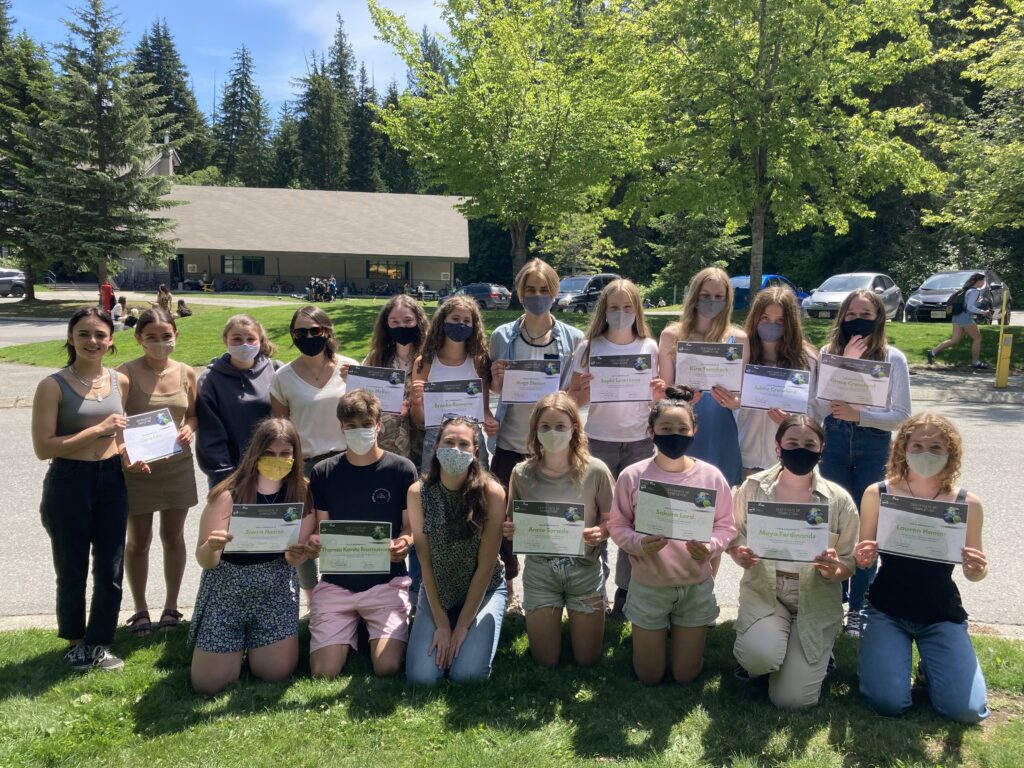
Team Members:
Sierra Haziza, Clara Iida, Cate Lee, Jenica Felius, Shira Flann
Team Mentor: Taniell Hamilton
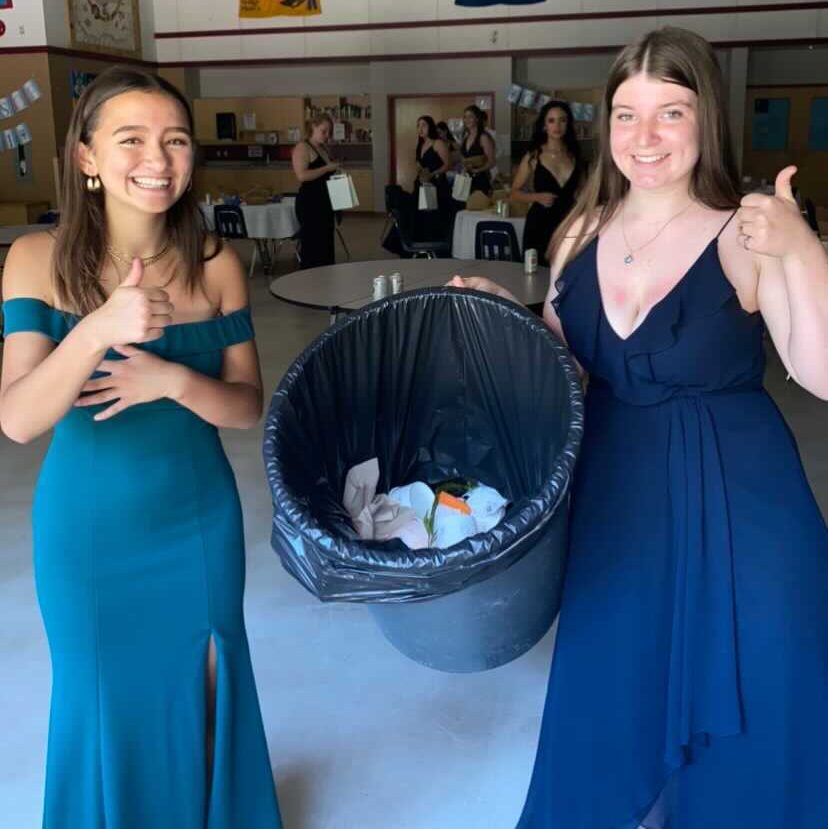
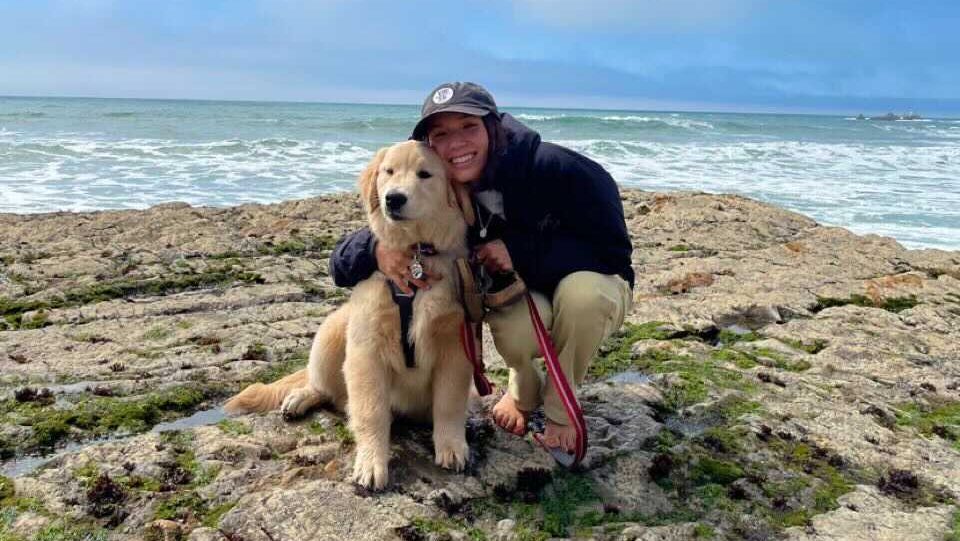
From January to June, our team “Erase the Waste” looked closely at waste management and reduction strategies within Whistler Secondary School. We reviewed diversion data, met with municipal councillors, and researched waste management and zero waste policies within the community and school districts across BC. Based on stakeholder engagement and research, we concluded that something needed to change with how the waste from our school was managed.
After many meetings both as a team and with our project stakeholders, we determined our next step was to take our project to the School Board. In time for the June board meeting, our team drafted a briefing document outlining our research findings and specific ‘needs’ we wanted to be incorporated into a district-wide, regulated, and effective three-stream waste reduction policy in all school facilities. The second part of our proposal to the School Board was centred around aligning SD48 waste management goals with those of their communities, all of which had goals to become zero waste. Our team asked the Board to use a waste management policy as a starting point to develop a Zero Waste action plan with a commitment to achieving Zero Waste to landfill and incineration by 2030.
To conclude our presentation, we asked the School Board to develop and have these policies and plans ready to vote on at the August 2021 board meeting. *Check back for future updates on the outcomes of this project!*
Check out the recording of their presentation to the SD48 School Board calling for an official waste management policy and commitment to achieving zero waste.
Check out the recording of their presentation at the Student Showcase Event.
Slide deck from their presentation to the SD48 school board June 2021
Trash-Talk-Board-Pres-2021Check out their Waste Management and Zero Waste briefing document for School District 48.
School-District-48-Waste-Management-and-Zero-Waste-Presentation-Brief-1Team Members:
Annie Sproule, Maya Ferdinands, Lauren Hamm, Sakura Lord, Grace Crawford, Addie Crawford
Team Mentor: Kristen Jones
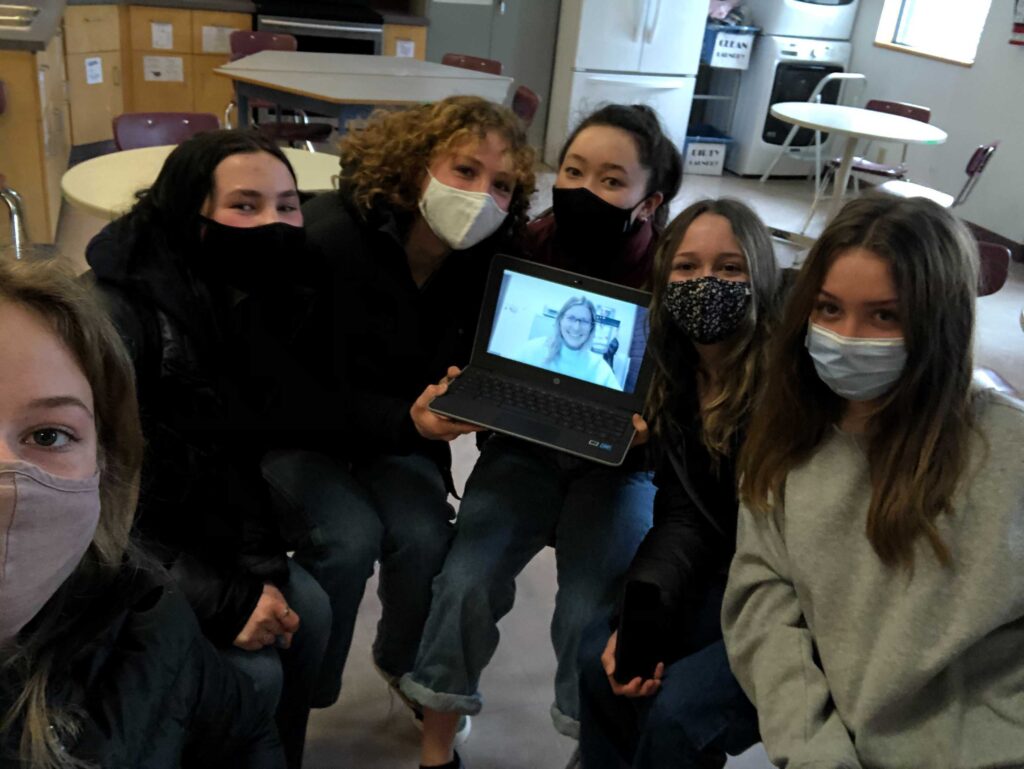
Fashion Forward is a project led by a group of grade 10 students with the goals of raising awareness about the environmental impact of the fashion industry, inspiring small changes among peers, and ultimately creating a conscious consumer culture.
Our group is very passionate about reducing the effects of the fast fashion industry on the environment and wants to have an influence within the community by educating students about this urgent issue and inspiring them to become part of the solution.
“I learned so much about starting and executing a project. I loved working with mentors and creating a project I am passionate about!”
-Maya Ferdinands
Grade 10 Program Graduate
Check out the recording of their presentation at the Student Showcase Event.
Check out the video they created for their peers that they played throughout WSS classrooms.
Check out some of the awesome posters they designed and placed around their school.
Team Members:
Kira Tomcheck, Sophi Lawrence, Ella Andrews
Team Mentor: Claire Ruddy
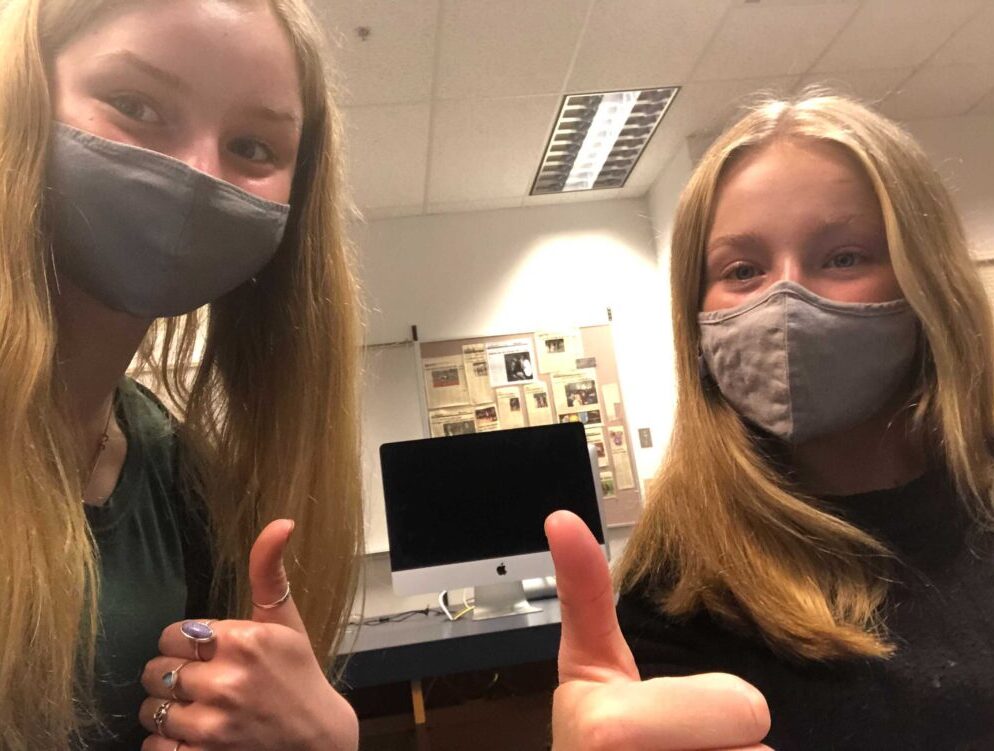

Hi, we are team eco actions! Our group consists of three girls: Kira Tomcheck, Sophi Lawrence and Ella Andrews. We started this project because we wanted to ensure that our peers are well aware of their effects on the environment.
Our vision was to create a platform for the eco club specifically to spread awareness on simple individual actions that you can do in your everyday life. We created an instagram account called @wssecoclub and made posts about all types of issues including fast fashion, packaging, ocean plastic and much more. We struggled with starting off a bit and lacked communication sometimes, but overall we are proud of what we did and hope we inspired people to do their part!
“Project now is a fun way to stay involved with the community while learning lots about working with mentors.”
-Kira Tomcheck
Grade 10 Program Graduate
Check out the awesome logo they designed for WSS eco club!
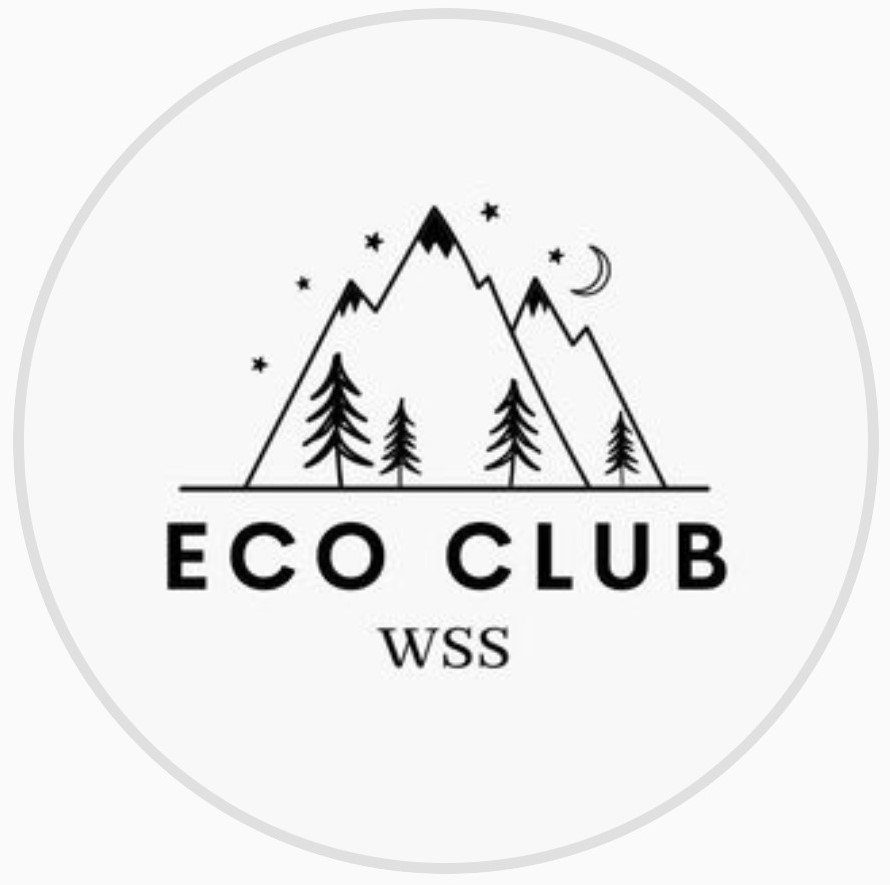
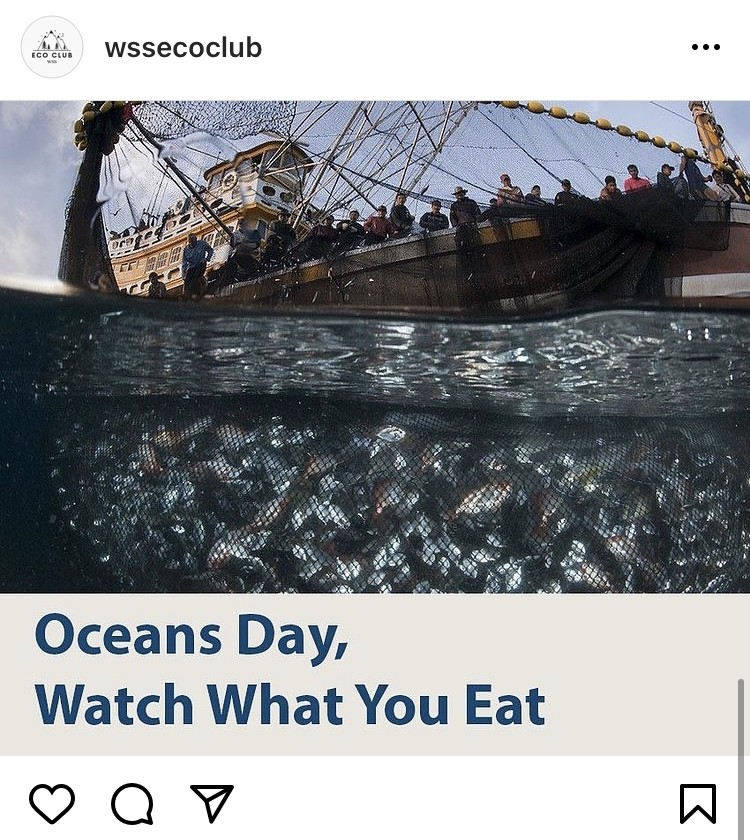
“World Ocean Day is coming up, next Tuesday! We need to remind ourselves to take care of our oceans because we simply can’t live without…
them. Did you know that 80% of our oxygen comes from the oceans? We encourage you all to watch the documentary “Seaspiracy” as it dives deeper into the disturbing inner workings of the commercial fishing industry, and how it is slowly destroying our oceans and the ecosystems within. This film helpfully explains the concept of bycatch, marine life accidentally caught while dredging for other species which is cast, usually dead or dying, right back into the ocean. Ali Tabrizi, maker of the film, captures all types of shocking details such as, the dolphin slaughter in Taiji, the harms of plastic fishing debris, the shark fin soup issue, the Faroe islands whale hunt and so much more. Now we won’t spoil it for you any further, but please watch this documentary, it will truly open your eyes and help you see why the oceans and it’s marine life are so essential to our future. What can you do? After you watch this film, we hope that you are compelled to lessen your seafood consumption or even cut it out all together. The more we consume, the more we support this extremely corrupt industry that is ruining our oceans. According to Dr. Sylvia Alice Earle, the commercial fishing industry takes 2.7 trillion fish out of our oceans every year and at this rate the ocean will be empty by 2050. Remember we cannot survive with a dead sea, so do your part, educate yourselves and be weary of what you consume.
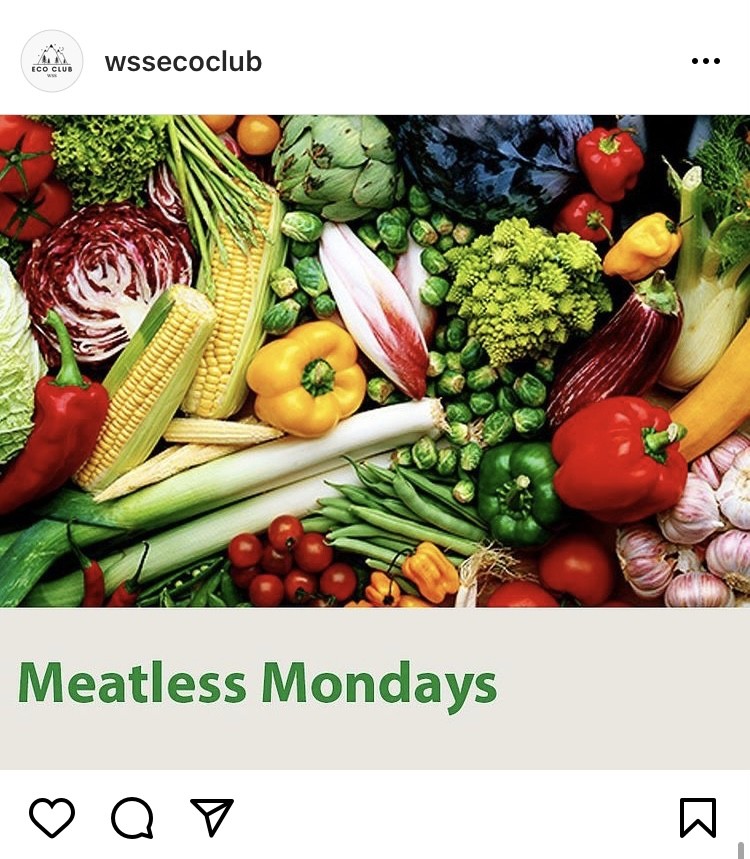
“Meatless Monday’s.
Going vegetarian can be a big commitment, and even though we all want to help the planet, giving up…
some of our favourite foods forever is a big ask. However, going vegetarian for just one day a week can have a huge positive environmental impact, while this seems like an insignificant action to take, if every person in the US alone went vegetarian for one day a week it would save over 1.4 billion animals per year from being raised for meat. This would have huge positive impacts on the amount of emissions released annually from the agriculture industry. There are many small individual actions that you and your family can take to help the environment.”
Check out some of the informational posts they made for the @wssecoclub instagram.
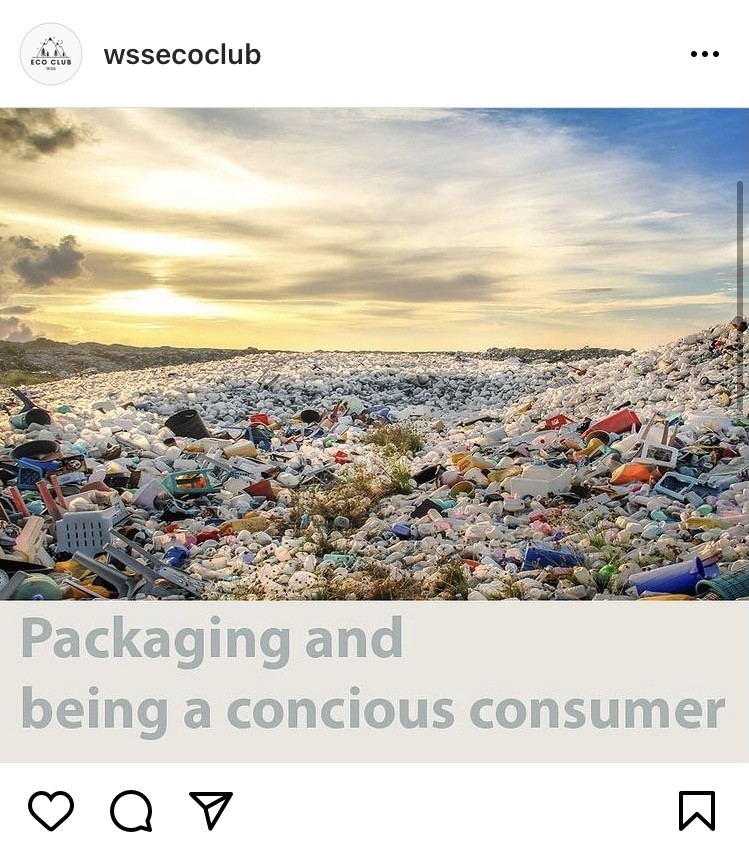
“Our plastic waste is increasing every year and has become a huge issue in the world. It is evident…
and well known that the mass production of plastic needs to be improved and fixed. Landfills over the past years receive up to 30.5 million tons of plastic, and only 9% of plastic ever produced is ever recycled. Further, “from 1950 to 2012, plastics production increased from about 1.7 million tons to nearly 300 million tons per year”. Much of this waste plastic waste is actually single use plastic. Therefore, many of us can actually create huge change simply by being more mindful about what we purchase and how we purchase our goods. So, what are some ways you can reduce your packaging?! Well, there are many. The easiest is simply just being more mindful about packaging in your daily life. By becoming a more conscious consumer, you can support companies that prioritize sustainable packaging or companies that use recycled materials in their packaging. Further replacing plastic bags and ziploc bags for reusable bags and reusable containers are fabulous ways to reduce waste. As a result, you and the community can decrease the collective carbon footprint, which will help the environment immensely. Further, we can incentivize companies to practice sustainability as they will see that people are endorsing companies that are sustainable, and they will in turn want to become greener. All in all, there are lots of ways to reduce your packaging and lots of important reasons why we should!”
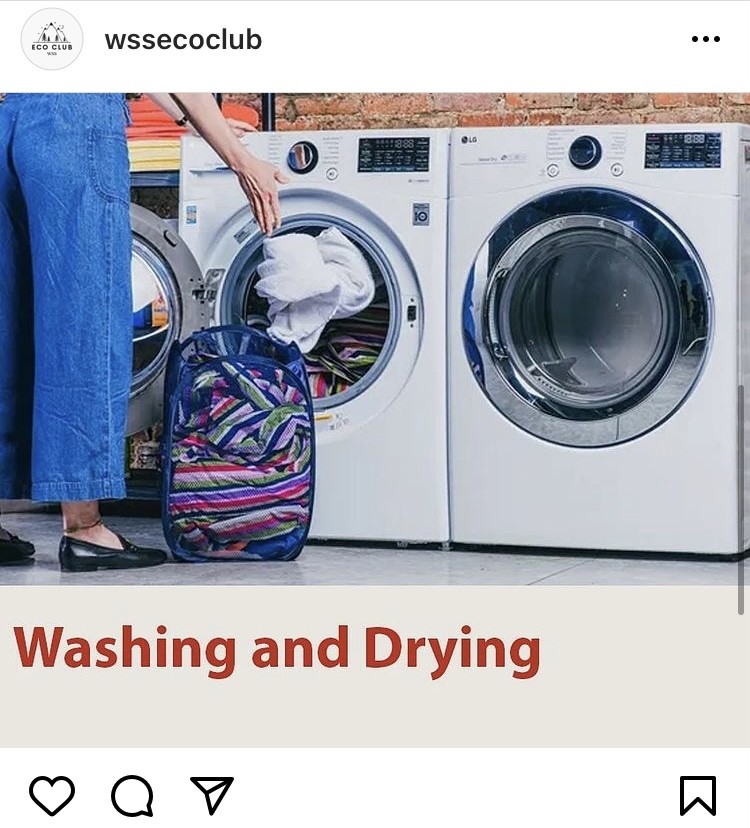
“Washing Machine Environmental Impact: washing and drying a 5 kg load of laundry every two days creates…
nearly 440 kg of carbon dioxide emissions in a year. Most of that energy is used up in the dryer cycle. Washing in hot water also carries a carbon cost that exponentially increases with the age of the machine. If it’s not in perfect condition at all times, it will take more energy to run. Clogging, or failing to clean out a washer or dryer regularly means having to run it more often and at higher temperatures. This increases the energy output. It’s hard when such a regular chore can have such a negative impact on the environment, but the good news is that small changes in this area can help to seriously reduce the impact! So how can you help? The less you run your washing machine the less impact, washing more clothes at once to avoid unnecessary extra washes is a great way to limit the number of times you run your washing machine. Clothes dryers also have a significant impact on the environment, An average drying-machine cycle uses just over 4kWh of energy and produces around 1.8kg CO2. If all households with a tumble dryer dried one load of washing outside each week, instead of by machine, they would save over a million tonnes of CO2 in a year.”
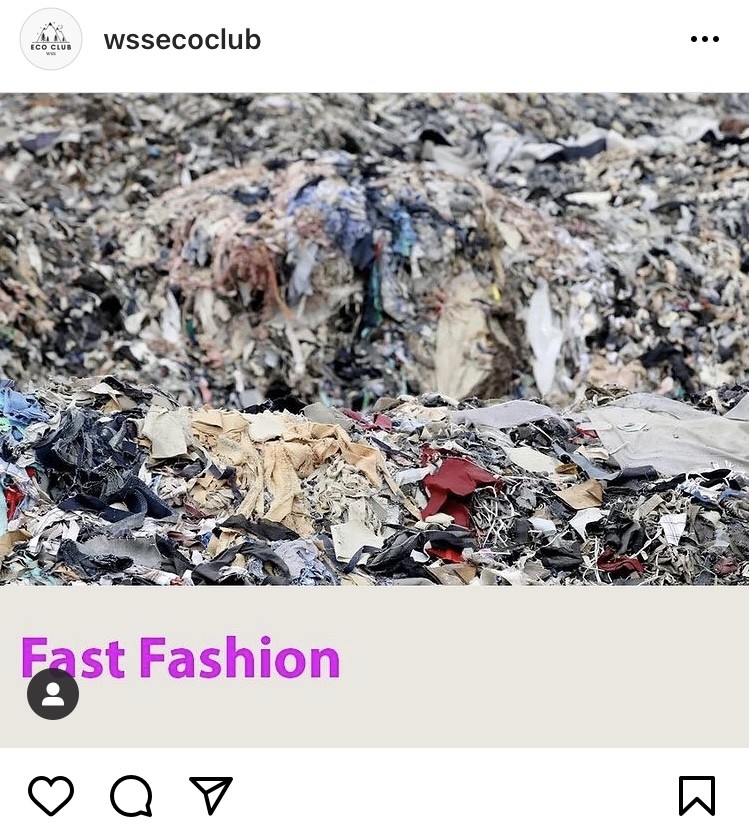
“What is it? Fast fashion is a design, manufacturing, and marketing method focused on rapidly producing high volumes of clothing…
Garment production utilizes trend replication and low-quality materials in order to bring inexpensive styles to the public. These cheaply made, trendy pieces have resulted in an industry-wide movement towards overwhelming amounts of consumption. Unfortunately, this results in harmful impacts on the environment, garment workers, and, ultimately, consumers’ wallets. What can you do? Shop at thrift stores and recycle all your clothes. There is no need to support fast fashion companies when there are perfectly good reusable clothes in consignment stores. Stop clothes from ending up in the landfill! Educate yourself.”
Team Members:
Hugo Steiner, Thomas Rasmussen, Abbey Mellor, Brooke Romano
Team Mentor: Luisa Burhenne
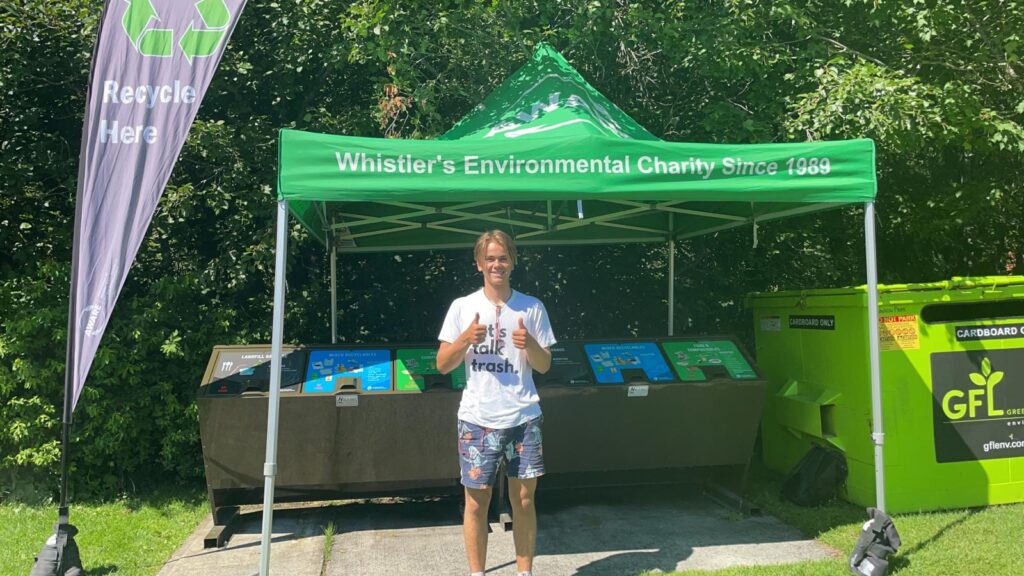
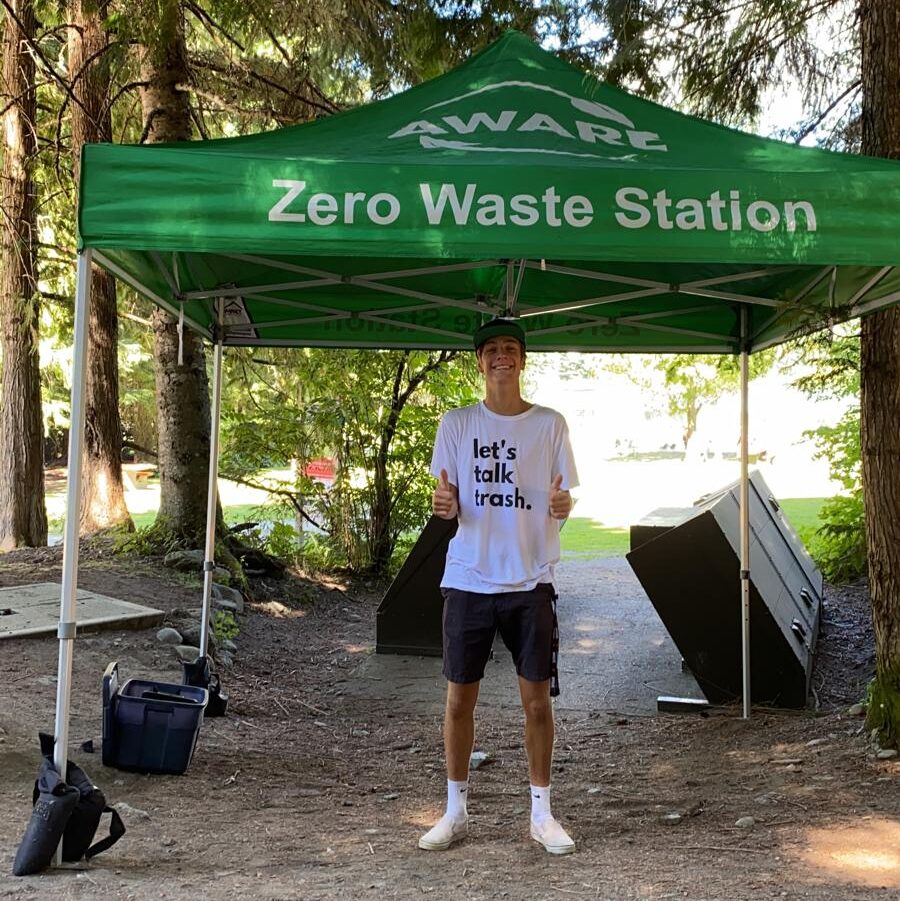
Our group felt that the most effective way of helping would be focusing our project on local government and transportation issues. We started out our project by researching RMOW’s 6 big moves. Seeing as transportation is Whistler’s biggest source of emissions, it was no surprise that 3 of the big moves were related to transportation. Once we knew what we wanted to focus on we had to decide what our project was going to be and how we were going to reach the community.
Since we are all interested in filmmaking, we decided that the best and most effective way of spreading our message would be to create an informative video promoting the use of public transport and electric vehicles. With the help of our mentor Luisa, we set about contacting relevant stakeholders within the community to see if anyone was willing to provide us with an interview for our video.
“ProjectNow was a great opportunity for me to immerse myself in the world of climate change and the inner working of government policies. I have learned a lot not just from the weekly presentations but also the networking opportunities that put me in touch with people who are very knowledgeable about climate change and other issues. ProjectNow has taught me skills that I will carry through the rest of my environmental career..”
-Thomas Kanitz Rasmussen
Grade 11 Program Graduate
Check out the recording of their presentation at the Student Showcase Event.
2021 Student Showcase
On June 15, 2021, Project NOW hosted our first public Student Showcase to celebrate our amazing program graduates!
